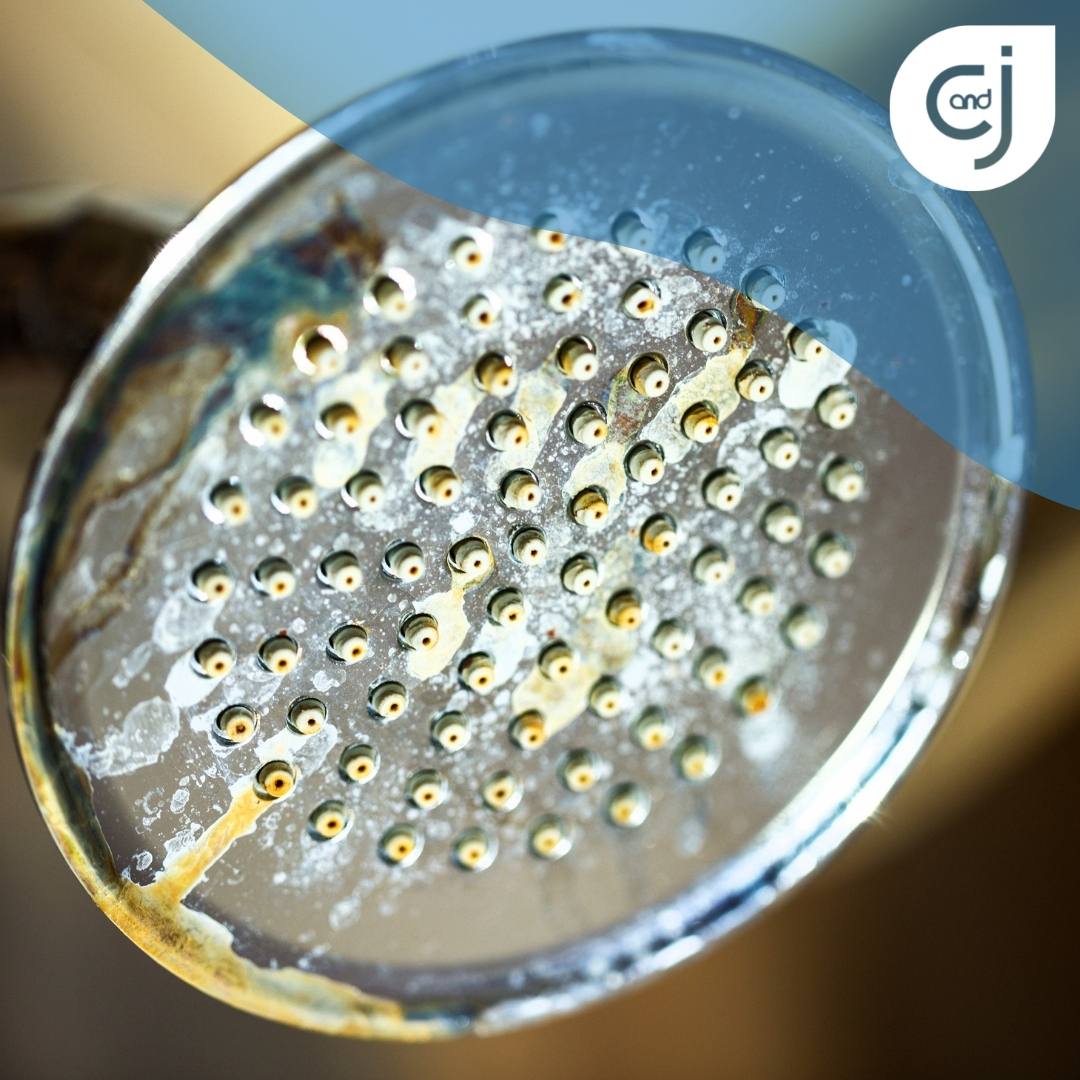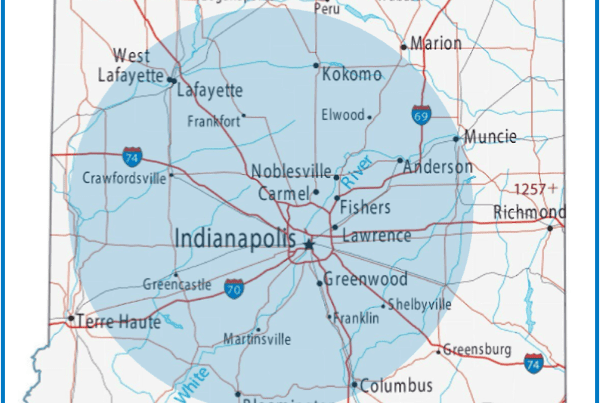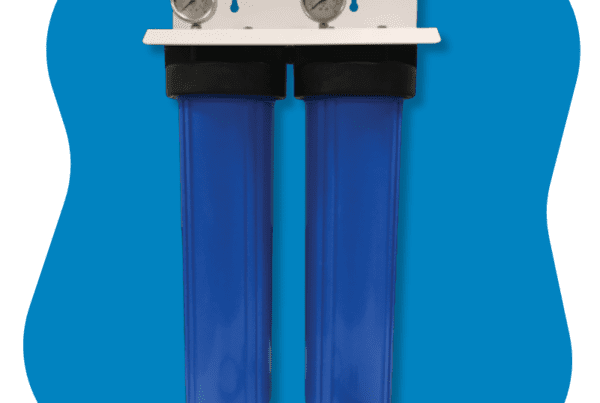Living With Hard Water: Why Does Well Water Stain?
Have you ever noticed your tap water causes mineral buildup in your dishwasher or sink? Or, does the water in your house make your hair dull and prone to breakage? If so, you likely are dealing with hard water.
Well water especially is prone to the side effects of hard water. But, you don’t have to live with them! Water softeners and other equipment provide water solutions to deal with mineral buildups.
We’ve got the solutions if well water staining issues are causing you problems. Keep reading to learn more about hard water and what to do about it.
What is Hard Water?
 Hard water contains salts such as magnesium, calcium, and iron. These natural minerals are essential for our bodies but aren’t always desired in our everyday water supply. The mineral content of water is what determines if it is hard or soft.
Hard water contains salts such as magnesium, calcium, and iron. These natural minerals are essential for our bodies but aren’t always desired in our everyday water supply. The mineral content of water is what determines if it is hard or soft.
Hard water is very common. Over 85% of all water supply in the US is considered hard. Many private homes and businesses use water softeners to treat their water supply.
The severity of your hard water is determined by the dissolved mineral content of magnesium and calcium:
- 17 to 60 parts per million is somewhat hard water
- 60 to 120 parts per million is moderately hard water
- 120 to 180 parts per million is hard water
- 180+ parts per million is very hard water
Getting your well water tested will show if you have a high mineral content. The mineral content of water is a concern for groundwater sources. Groundwater moves through rocks and soil, bringing along extra minerals.
Hard Water Signs in the Home
There are some telltale signs that your water supply is pushing hard water. Luckily, hard water is entirely treatable. Here are the most common signals you have hard water:
- it’s well water or ground sourced
- your dishes are spotty or cloudy
- your hands feel slimy after washing
- your clothes are faded and stained after washing
- low water pressure from the tap
What Causes Hard Water to Stain?
Hard water causes unsightly stains on your appliances. The dissolved mineral content in the water builds up. It leaves white, blue, or orange-colored deposits on whatever surface it frequently contacts.
Mineral buildup stains are also hard to treat. Once the buildup has accumulated, it takes harsh cleaners to scrub and soak off your appliances. Using acids such as vinegar also helps remove the stains caused by hard water.
Letting vinegar sit in the dishwasher or coffee pot overnight breaks down the buildup before scrubbing. But, it’s best to soften the water before it hits your appliances to avoid this extra work!
Too many minerals in your water are hard on your clothes. If the water coming out of your taps is not clear, it will stain your light-colored clothing. Blacks fade faster than expected, and whites turn grey or yellow.
Research shows that well water and hard water cause clothing to stain and wear out 15% faster than soft water.
What Does Hard Water Do?
The minerals that make water hard are good for our bodies but can cause problems for our homes and equipment. This is why treating hard water to clear water cloudiness and darkened color is recommended. And, too many dissolved minerals in the water supply causes buildup and scaling.
Clogged Pipes from Hard Water
Clogged pipes from hard water are not much of a concern for modern construction. Buildings constructed between the 1940s and the 1970s often used galvanized steel pipes. Calcium and magnesium build up inside of galvanized steel and block water flow.
If you have a home built in these decades, using a water softener helps to prevent clogged pipes.
Hard Water Builds Up Scale
High mineral buildup in our water leaves spots on our dishes and glass wear. When a white residue is found inside a coffee pot, this is due to hard water. Any appliance that uses warm or hot water is subject to accumulating the scale.
When hard water is heated up, it solidifies its calcium content. In a boiler or a hot water tank, the mineral buildup makes the appliance work harder to heat the water. This puts a strain on the equipment and causes it to have a shorter life span.
Appliances working harder also increases your electricity or gas bill!
Hard Water Reacts with Soap
The minerals in hard water create a chemical reaction when mixed with soap. This type of chemical reaction is a precipitate. A precipitate is when two liquids mix to create a solid.
Lathering soap into water dissolves it. The dissolved soap mixes with the dissolved magnesium in hard water and creates ‘soap scum.’ Soap scum is a solid that can’t be dissolved.
When soap scum is left on your hands, it feels slimy. Like, the soap can’t get washed away. Soap scum in our bathtub or sinks requires scaling to remove.
 Hard Water Means More Bathroom Cleaning
Hard Water Means More Bathroom Cleaning
Because of soap scum buildup, bathtubs and sinks require frequent cleaning. Cleaning daily or every other day prevents a major accumulation of the soap scum. Other minerals in hard water also leave white scaling marks that need attending to.
If iron is present in the water, the toilet bowl will stain. This is an unsightly side-effect of hard well water. Often, the shower and tub also get well water staining.
Dull and Dry Hair and Skin from Hard Water
Minerals from well water and hard water build-up on our hair and skin. This creates dry and dull-looking hair. Iron and other colored minerals also stain light-colored hair!
Because hard water reacts with soap, it makes it hard to rinse off our bodies and hair. Using water solutions such as water softeners avoids damaging our skin and hair from drying minerals.
Hard Water Provides Too Many Minerals
While many studies show that some mineral content in our water is good for us. Calcium and magnesium are essential building blocks of our bodies! But, it’s true, you can have too much of a good thing.
Research shows installing water softener treatments improves the risk of kidney stones.
How to Treat Hard Water
While hard water is common in the United States, it is also easy to treat. There is no need to live with cloudy or colored water. Water softener treatments provide immediate relief from stains caused by hard water.
The first step in treating the hard water in your home or business is getting your water tested. This will show the level of dissolved minerals present within the water source. Testing also shows if there are odor, staining, and corrosivity concerns.
Here are some effective hard water treatment solutions:
Water Softeners
Water softeners soften water by removing the excessive minerals. By lowering the mineral content of the water, you’ll extend the use of your appliances. Water softener systems prevent mineral buildup from occurring.
This means less time cleaning bathrooms and kitchens. You’ll also prevent drying out your hair and skin as a result of hard water.
Reverse Osmosis Systems
These systems work by filtering out dissolved minerals within the water. They also remove other impurities, such as metals. Reverse osmosis systems are great for taking out chlorides and sulfates, as well as aluminum, copper, and arsenic.
 These systems do more than water softeners and are ideal for houses with older pipes that may have contaminants. Reverse Osmosis works by running water through membranes big enough for only water molecules to pass through. All other molecules are trapped and removed from the water supply.
These systems do more than water softeners and are ideal for houses with older pipes that may have contaminants. Reverse Osmosis works by running water through membranes big enough for only water molecules to pass through. All other molecules are trapped and removed from the water supply.
A four-stage filter system works by trapping sediment, chlorine, dissolved solids (like minerals), and odor.
Well Water Solutions
Groundwater is often full of dissolved mineral content as well as other contaminants. A full well water system treats groundwater by softening it.
These systems also provide bacteria treatment, sediment filtration, and odor control.
City Water Solutions
Just because a water source comes from city lines doesn’t mean that it’s safe from hard water issues—city water benefits from water softener systems.
They are often paired with dechlorinators to remove the chemicals used to clean city water.
Get Your Hard Water Softened Today
At C and J Water, we provide high-quality water treatment solutions. Our Certified Water Specialists test and treat both well water and city water sources. There is no need to live with unsightly stains and appliance buildup, or dull hair and laundry.
Soft water prolongs the life of your clothing. It also saves you time and money by requiring less time scrubbing with harsh cleaners to remove hard water stains. Install a small and affordable water treatment system in your home or business to remove the extra minerals in your water.
Contact C and J Water today to get your free quote on your water system!




